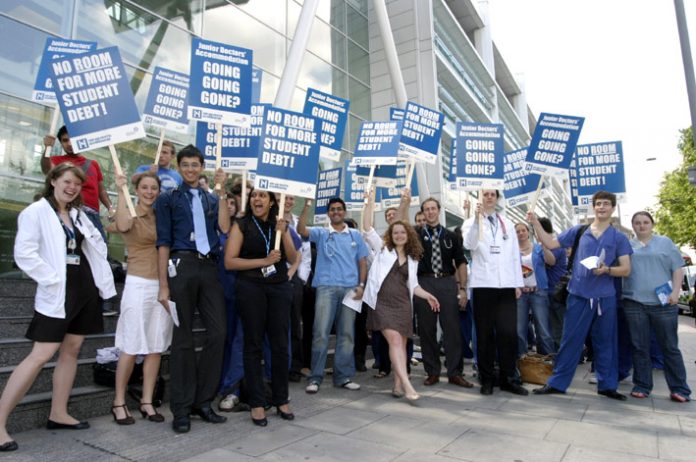
‘The government’s dogmatic and misguided plan to commercialise the NHS has gone too,’ British Medical Associatoin (BMA) Chairman of Council, Dr Hamish Meldrum warned yesterday.
Addressing a press conference on the eve of the BMA Annual Representative Meeting, beginning today in Liverpool, he warned privatisation is ‘threatening the very futue of the NHS’.
Meldrum introduced a nationwide public opinion poll conducted by Hamilton Lock for the British Medical Association that revealed how worried the public is about future funding of the health service in light of the recession.
Around nine out of ten respondents feared that services could be cut (90%) and that waiting times for treatment could increase (89%).
Charges
Over eight out of ten (85%) individuals believe there will be more charges for NHS services and eight out of ten (80%) thought the NHS should prioritise funding for the most important services.
When asked if taxes should increase to maintain the growth of NHS funding, four out of ten individuals (40 %), agreed.
The poll reveals that the public is opposed to the privatisation of the NHS.
Almost half (47%) say there should be no further contracts for commercial companies to provide NHS services and 55% (more than five out of ten) say the NHS internal market, where hospitals and GPs compete, should be abolished.
Meldrum said: ‘These results show how anxious the public is about the effects of the recession on the health service, with a significant number saying taxes should increase to protect NHS funding.
‘No-one wants to see any cuts in the public sector but our poll reveals just how much society values their health service.
Slumps
‘Fear often goes hand in hand with economic slumps, with people worrying what will happen to them and their families in times of ill health.
‘While we appreciate that the government needs to steer the country through this difficult economic period, we urge it not to do so at the expense of NHS funding.
‘People always need good quality healthcare and it would be a huge mistake to try and make savings by squeezing the NHS.
• Second news story
MEDICAL STUDENTS £46,000 in debt
Chair of the British Medical Association (BMA) medical students committee, Tim Crocker-Buqué, is due to warn that the next generation of NHS doctors will emerge from six years of study owing as much as £46,000.
In excerpts from his speech released ahead of delivery at the BMA’s Annual Representative Meeting in Liverpool this week, Crocker-Buqué warns: ‘Average graduate debt for medical students is £20,000. But this is just the average.
‘I have funded myself through medical school, as my parents could not afford to support me fully. This will leave me with a graduate debt of £45,000.
‘This is before we take into account the rise in annual tuition fees to £3,145.
‘We are yet to see the first medical graduates under this arrangement – but the BMA predicts that average graduate debt will soar to a crushing £37,000.’
Commenting on calls to increase annual fees to £5,000, Crocker-Buqué continues: ‘Medical education should be about your potential to become a great doctor, not your ability to pay.
‘The fees being talked about will place a devastating financial dilemma in front of families of all social backgrounds.
‘They can either drive themselves into serious financial difficulty at a time of deep recession or abandon their children’s aspirations.
‘Many from low-income families will not even get that choice. Lifting the limit on tuition fees will crush the hopes of thousands of young people who have the talent, but not the cash, to study medicine.’
‘Although the private sector has for many years played a role in providing NHS care, a majority of the public believe that the government’s dogmatic and misguided plan to commercialise the NHS has gone too far and is threatening the very future of the health service.
‘The BMA would heartily agree and this bears out what doctors are telling us as part of our Look After Our NHS campaign.’